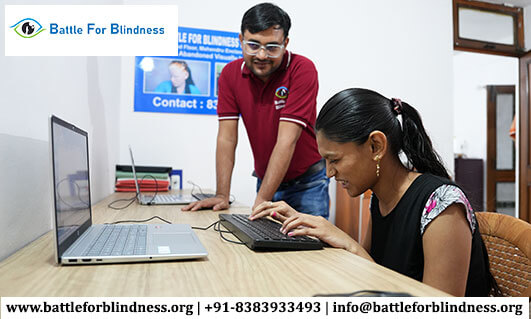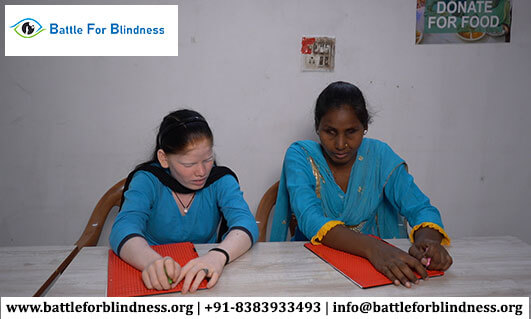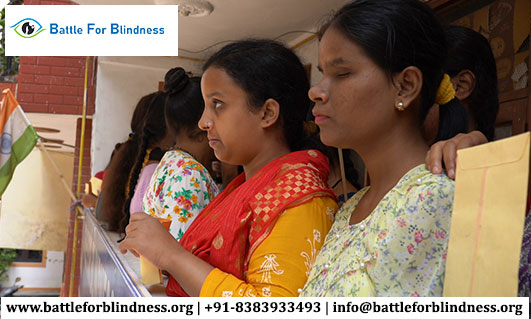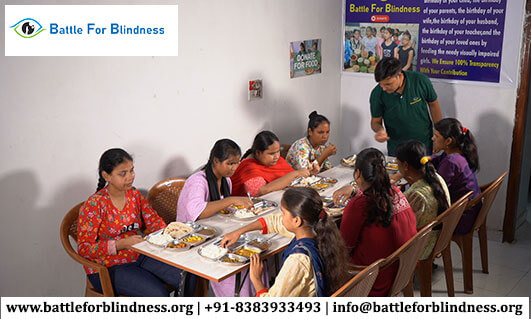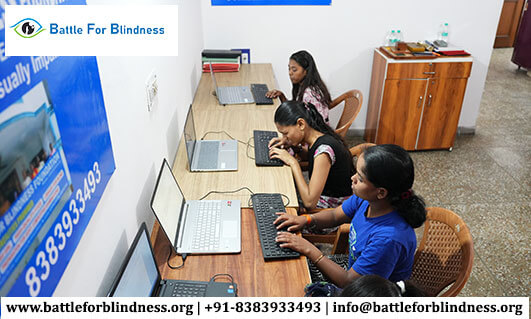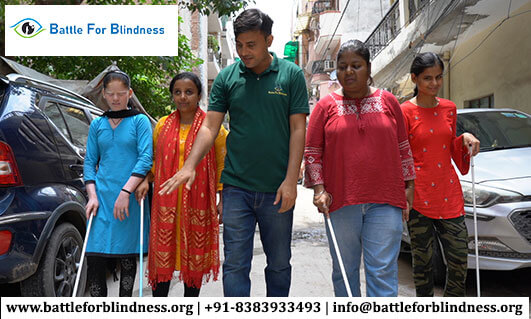Shedding light on the unseen struggles
When we think about the struggle of visually impaired individuals, let us not forget about the unique challenges faced by abandoned blind girls. These girls not only lack the support and care of their families but also face societal discrimination and limited access to education, healthcare, and their personal needs. This blog aims to shed light on the silent struggle of abandoned blind girls and raise awareness about their unique challenges.
The prevalence and impact of abandonment on blind girls
Abandonment is a distressing situation that affects individuals across various demographics. The prevalence of abandonment among blind girls is a concerning issue that demands attention and intervention.
Blind girls are affected by abandonment, often due to cultural biases, limited resources, and societal expectations. Many families may perceive blindness as a burden or view blind girls as incapable of leading independent lives, which results in abandonment or neglect. This deeply rooted prejudice perpetuates a cycle of abandonment and denies these girls the care, love, and support they deserve.
The impact of abandonment on blind girls is profound and enduring. Without stable homes or families, blind girls face significant challenges in every area of their lives. Their cognitive, emotional, and social development is hampered, leading to long-term consequences such as low self-esteem, depression, and a sense of marginalization.
Navigating the world without sight: Additional challenges faced by blind girls
Blindness poses unique challenges for individuals in navigating the world around them, and blind girls face additional obstacles and barriers in their daily lives. These challenges can arise from cultural, societal, and practical factors, and understanding and addressing them is essential in ensuring equal opportunities and inclusivity for blind girls.
Engaging in social interactions and participating in recreational activities are crucial for personal development and building relationships. However, blind girls may face isolation due to inaccessible venues and a lack of inclusive recreational programs. This isolation can take a toll on their mental health and overall well-being.
In addition, blind girls often face unique challenges in personal care and grooming. Without the ability to rely on visual cues, tasks such as choosing appropriate clothing, applying makeup, or styling hair become more challenging. Public restrooms and changing facilities may also lack accessibility features, making it harder for blind girls to manage their care needs independently.
Transportation is yet another significant challenge faced by blind girls. Navigating public transportation systems can be intimidating and unsafe without audio announcements, braille signage, and tactile maps leading to the difficulty for blind girls to independently travel and access public transport. This can restrict their mobility and limit their ability to explore new places, pursue employment opportunities, and enjoy recreational activities.
The importance of specialized education and support systems
Abandoned visually impaired girls have immense potential that often goes untapped. By providing the necessary support and resources, we can unlock their abilities and empower them to become successful individuals.
By providing them with access to quality education and specialized educational programs that cater to their unique needs, we can equip them with the knowledge and skills they need to prosper. This includes braille literacy, computer skills, and vocational training tailored to their abilities.
In addition to education, it is crucial to provide opportunities for these girls to develop their talents and interests. Creating inclusive spaces where they can engage in activities such as music, art, sports, and entrepreneurship can greatly enhance their self-esteem and overall well-being. By nurturing their passions, we enable them to envision a future where their abilities shine.
Empowering abandoned blind girls through inclusive programs
We must address the challenges faced by abandoned blind girls and work towards creating an inclusive society for them. This can be achieved through implementing inclusive education policies, improving accessibility in healthcare facilities, and promoting vocational training programs specifically tailored for visually impaired individuals. To address these challenges, it is important to prioritize the following key areas:
- Education: Providing quality education that is inclusive and tailored to the specific needs of visually impaired girls is essential. This includes ensuring access to braille materials, specialized technology, and trained teachers who can effectively support their learning.
- Rehabilitation and healthcare: Visually impaired girls may require specialized rehabilitation services and regular healthcare check-ups. Providing them with access to these services can enhance their overall well-being and enable them to lead fulfilling lives.
- Vocational training and employment opportunities: Equipping visually impaired girls with vocational skills and connecting them to employment opportunities can empower them to become financially independent and contribute to society. This can be achieved through partnerships with businesses, NGOs, and vocational training institutions.
- Emotional and psychological support: Addressing the emotional and psychological needs of abandoned visually impaired girls is crucial for their overall development. Providing counseling services and creating a supportive network can help them build resilience and self-confidence.
- Advocacy and awareness: Efforts should be made to raise awareness about the potential and rights of visually impaired girls. This includes advocating for inclusive policies and challenging societal stereotypes and discrimination.
By focusing on these areas, we can unleash the potential of abandoned visually impaired girls and create a society that values and supports their growth and development. Through comprehensive and targeted interventions, we can ensure that these girls have an equal opportunity to thrive and contribute to their communities.
Raising awareness and addressing societal misconceptions
To fully unleash the potential of abandoned visually impaired girls, it is essential to address societal barriers and prejudices that may hinder their progress. Addressing the issue of abandonment does not only benefit blind girls themselves, but it also contributes to building a more inclusive and compassionate society. By breaking down societal biases and providing opportunities for blind girls to thrive, we can ensure their rights are upheld, their potential is realized, and they are recognized as valuable members of our communities.
The need for collective efforts and advocacy
Advocacy and awareness campaigns are crucial in promoting inclusivity and changing perceptions.
Addressing these challenges requires collaboration between various stakeholders, including educational institutions, NGOs, Governments, policymakers, and the community as a whole. Develop comprehensive support systems and rehabilitation programs that address their unique needs. Creating inclusive educational environments, implementing accessibility measures in public spaces, and promoting equal employment opportunities are essential steps towards empowering blind girls and ensuring their full participation and integration in society. Through these efforts, we can make significant progress in overcoming the additional challenges faced by blind girls and foster a more inclusive and equitable world for all.
Conclusion
Abandoned blind girls face unique challenges that often go unnoticed. They are confronted with a lack of support, limited access to education and resources, and societal stigmatization. By raising awareness and understanding these struggles, we can work towards creating a more inclusive and supportive environment for these girls. Follow us for more updates and information on how you can contribute to making a difference in their lives.
